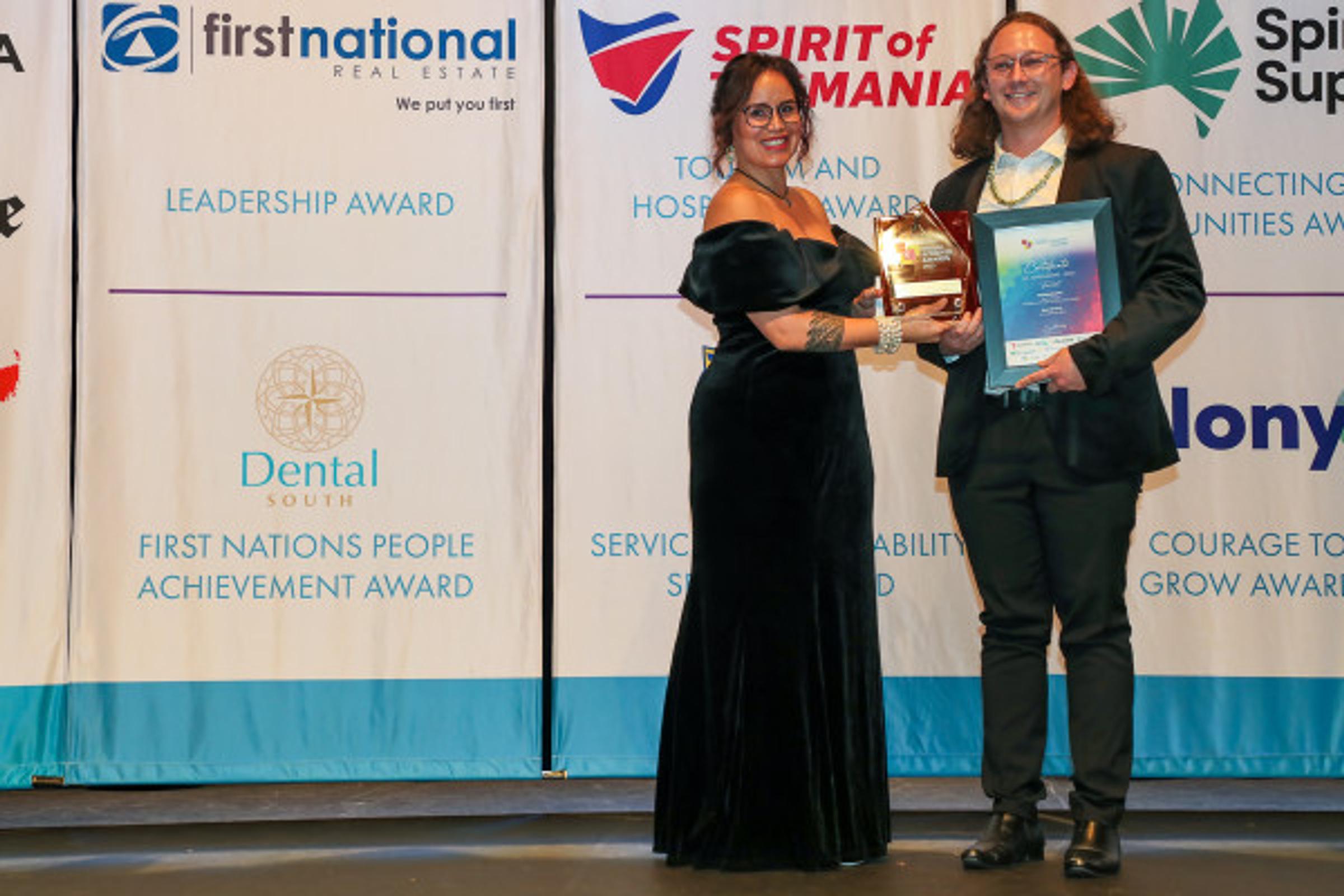Tasmanian Young Achiever

St Virgil’s College staff member and trawlwoolway and plangermairenner pakana scientist Mr Jamie (Jam) Graham-Blair has won the Dental South First Nations Peoples Achievement Award in the Tasmanian Young Achiever ceremony held on Friday 12 May at Wrest Point Casino.
Jamie is thrilled to receive the award which highlights the impact that outstanding young First Nations people have in Tasmania and beyond.
Working as an educator and learning support officer at St Virgils College, he ensures that Aboriginal and Torres Strait Islander students have a sense of pride and empowerment within their education journey.
“I work to maintain a standard of respect, understanding and truth-telling within the school community,” said Jamie.
“By co-organising College events like Treaty Day, where we gather as a whole school cohort to yarn about historical and contemporary treaty, I work hard to keep this important step towards true conciliation in the minds of our future leaders.”
Jamie's work at St Virgil’s includes supporting classroom learning, accompanying school excursions to sites of cultural and historical significance, and leading professional learning for staff.
Supporting the College’s Bush Kinder and Early Years program, Jamie spends time walking on Country, building huts, searching for native foods and animals and hearing traditional stories of creation, powerfully introducing the young students to Country in a connective and playful way.
In older years, as learning morphs into defined subjects, whether it’s biology, engineering, history, art, sport or spirituality, the holistic nature of palawa culture can be found within the St Virgil’s curriculum, where students can gain deeper understanding and a broad worldview.
“From traditional dance to muttonbirding yarns, cultural burning, native foods, medicines and crafting, school visits can be organised through St Virgil’s College,” he said.
Initially Jamie was commissioned by the College to create a biocultural survey of the Austins Ferry campus, one in which the College hoped to identify plant species on the campus which are of cultural significance to Tasmanian Aboriginal people.
Named the tunapri makuminya Project, it grew to include conservation and regeneration suggestions and proposals to grow palawa community engagement, cultural practice and knowledge reclamation and sharing opportunities within the muwinina landscape.
The project also provides an opportunity for Aboriginal students to stay connected to the land upon which their school sits.
